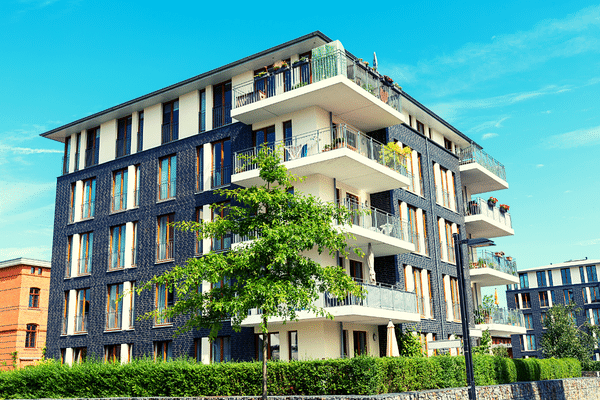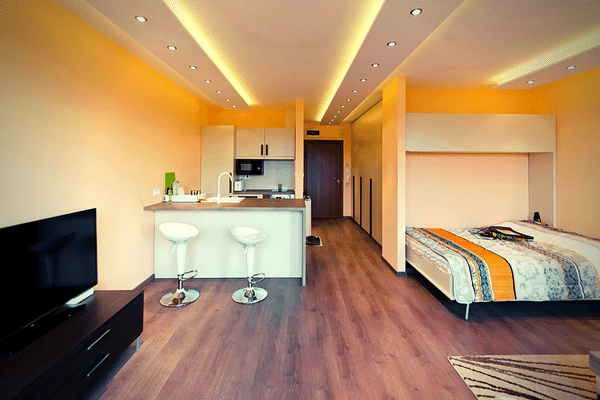Hotel living is something many people have experienced at one point or another. Whether you’re a visitor in a new city, traveling for business, needing somewhere to stay while selling your home, or simply looking to save some cash on rent by staying somewhere with a private kitchen and bathroom, there are plenty of hotel living situations that can be an ideal solution for any person.
However, hotel living isn’t exactly the same as living in a standard apartment building with other residents. You won’t have things like neighbors or maintenance staff to help you if something goes wrong. Instead, it’s up to you to manage all aspects of the space and your living experience.
Here’s everything you need to know about hotel living so that you can make the right decision for your situation.
Understand the differences between hotels and condotels
The key difference between a hotel and a condotel is that the latter is a form of long-term living. condotel buildings often have shared spaces such as a gym, parking garage, and swimming pool and may include cleaning services, similar to a hotel.
You would lease out a single room in a hotel, though, not rent out an entire condo unit. Hotels are primarily focused on short-term stays, while condominium buildings are built with long-term guests in mind.
Both the long-term guest and short-term guest living situations can vary vastly depending on the type of hotel or individual room you rent. Hotels are often categorized by their star rating, which is determined by how luxurious the accommodations are.

What to bring when you live in a hotel
One of the biggest things you’ll need to bring when you live in a hotel is a container to store your food. You can’t simply leave food out on the countertop or in the fridge the way you would in a normal household.
You may also want to invest in a portable air freshener, as hotel rooms often aren’t as clean as your average home. For your health and safety, you may want to keep a few items on hand, as well. First aid kits, fire extinguishers, and flashlights are a great idea, as are masking tape and extra extension cords.
You might also want to bring a few tools, such as a wrench and power strips, depending on the layout of your space.
How to find a safe hotel living situation
If you’re staying in a hotel, it’s crucial to find a safe, clean space to call home for an extended period of time. While you can’t always control what other guests do while staying at the same hotel, you can do your research to find the best option in your area.
Start by looking at online reviews to see what other guests have to say about the hotel you’re considering. One way to weed out any potentially unsafe places is to look at the average length of stay. If most guests stay four nights or less, the place is probably more of a short-term stay motel than a long-term living situation.
Hotel rooms can vary widely in terms of amenities, including things like WiFi and the quality of the bed. If you’re looking for a more luxurious living situation, you may have to pay a bit more for it.
The cost of hotel living
Hotel living can be an excellent option for people trying to save money. While the cost of a hotel can vary depending on the length of your stay and the room you choose, you can easily save hundreds of dollars per month by living in a hotel.
One of the biggest expenses you’ll encounter while staying in hotels is the cost of WiFi. If you’re staying in a hotel with free WiFi, you can expect to pay a premium for it. You can also expect to pay more for a room with a better view (such as one near the pool or with a scenic view). You’ll also want to factor in the cost of food, as eating out regularly can get expensive.
Managing your food and supplies while staying in a hotel
If you’re staying in a hotel, you’ll want to make sure you have plenty of food and supplies on hand to last you for the duration of your stay. This means stocking up on basics like milk, eggs, bread, and peanut butter so that you can make yourself a sandwich or PB&J at any time without having to leave your room.
If you need to store your food items in the fridge, make sure you put them in a container so that they don’t leave a mess. And make sure to keep that fridge door closed as much as possible so that your food doesn’t spoil as quickly. Hotels often have a maintenance schedule, so you might have to be quiet during certain times of the day.
This means that you should keep food-related activities during those times to avoid being too noisy or bothering other guests. You can also clean up as quickly as possible to minimize any potential mess.

Conclusion
Hotel living has become increasingly popular in recent years, whether guests are staying for short-term work assignments or placing long-term housing arrangements. No two hotel rooms are the same, so you can pick a place that best fits your needs.
If you’re looking to save money or are in a situation where you don’t have other housing options, living in a hotel can be an excellent solution. The key is to find a safe, clean space and keep your living situation organized and uncluttered to reduce noise.
